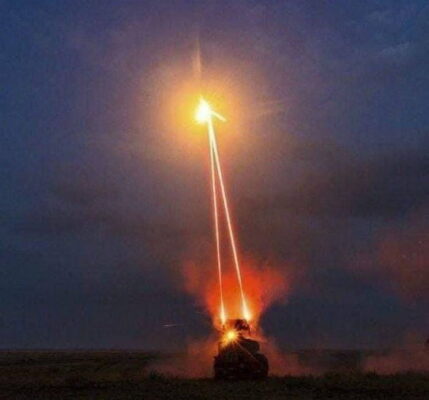
Gepard Destroying Shahed Drone over Ukraine
Watch the Mountains
The next year will remain mostly unpredictable as the War with Russia and resulting inflationary pressures create chaos in energy distribution and amplifies poor policy decisions in normally stable economies. The directed focus on Ukraine and the change in the power balance the conflict has surrounding Russia’s borders will likely result in more conflict even if there is an end to the Russia-Ukraine War in 2023. Conflict has already begun along Russia’s southern territories as former Soviet republics initiate new regional conflicts between each other. Despite many of them being part of the same NATO like security pact with Russia as well as directly with each other, the perceived or real weakness of Russian policy enforcement post April 2022 has begun to create instability in the Caucasus and surrounding regions.
While recent conflicts before late 2022 between Armenia and Azerbaijan resulted in a cease-fire and notable losses to both sides, the recent break in the cease-fire by Azeri forces has resulted in the Nagorno-Karabakh region having its only road to supplies cut off from support from Armenia. This impending human rights disaster may change the position of outside supporters from both sides, but with the previous cease-fire likely being silently promoted by Russia against further advancement by Azerbaijan, it could be the case that Russian influence was unable to prevent such a drastic advancement against citizens residing in Nagorno-Karabakh recently. The alarm has been raised by human rights groups, but it is most likely the case that little to no attention will be given by the general media and policy advisers to the region as is often the case with such human rights violations that take place East of GMT+2. The possible restrictions on Russian oil and gas and Azeri oil and gas being one of the only reliable fuel sources via a pipeline through Turkey to Europe will surely skew any Western response to the conflict despite recent American interest.
China’s view of Russia has surely changed in 2022. The perceived weakness of Russia has given many in China a dynamic view of Russian power in 2023, and it may have consequences of lost territory for Russia, either by purchase or even possibly by coercion. While the Soviet Union and China were considered the major Communist states during the Cold War that could challenge the United States on equal footing, the 1960s brought about conflict between the two Red allies over territories taken in the 1800 during Russia’s expansion to the East. With a hot conflict and possible nuclear options being considered between the Soviet Union against China during the Cold War, a resolution eventually resulted in a Cold Peace between the two nations. With Russia’s border being now concentrated in a smaller region than the Soviet Union had access to and China possibly pulling away from Russian made technology to supply the PLA, China will take decisions to benefit their long term interests, including unresolved issues from the 1800s. This may occur even if it may damage relations with Russia post-2023.
India is in a unique position as beyond its own border disputes, it has good relations with both sides of the conflict in Ukraine as far as Russia and NATO powers are concerned. Armenia would do well to create closer ties with India as both have strategic relations with Russia and influence in the region. The influence India has in the region would motivate surrounding counties to act in a de-escalatory fashion where Russian influence may be lacking post-2022. India’s military is greatly supplied with Russian made or Russian licensed weapons technology and India has a well prepared and supplied security structure. While modern Russian equipment is seen to be affected greatly on the field in Ukraine, it is likely the case that Indian equipment based on the same designs would perform as satisfactorily as Western equipment would when facing weapons like the Javelin anti-tank missile. With those special weapons becoming scarce as the intense use of them continues in Ukraine, Indian security policy is likely at an excellent current standard.
The end result of protests in Iran in regards to Russia is key to how both conflicts may change their respective regions rapidly in 2023. With Iranian purchased drones and missiles being used against innocent civilians in Ukraine while Iran attacks its own citizens, the standard on addressing human rights East of the GMT+2 may unfortunately hold beyond logic. Billions have been directed towards weapons in Ukraine to shoot down drones without considering the destruction of the facilities importing drones and missiles, or the fabrication facilities for those terror weapons designed to be used against innocent civilians. Beyond the reduced cost solutions of eliminating drones and missiles before launch, a legal option against the creators of the drones and users of the drones who both are aware of their use against civilians should be commenced immediately. A legal standard from when V1 and V2 terror weapons were shot into England during the Second World War should apply, a legal standard to which both Russia and Iran held to in past generations. Until those reasonable actions are taken, defending Ukraine’s cities will depends on an ever dwindling stock of advanced missile systems and the ingenuity of adapting older 1970s Gepard Cannon systems and possible 1960s ZSU-23-4 Shilka radars to target and shoot down low cost Shahed drones.